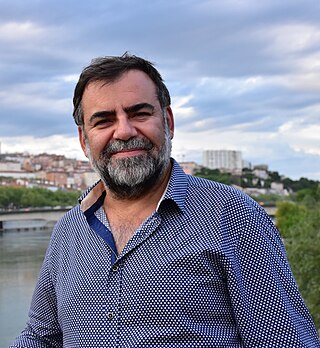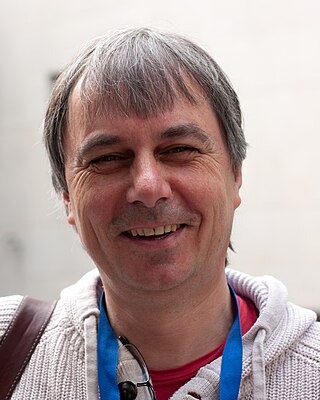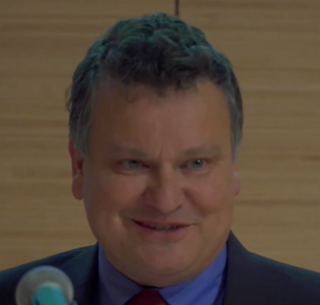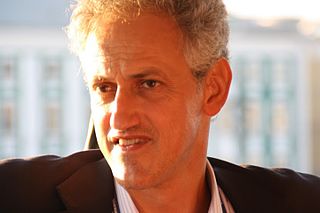
Robert Endre Tarjan is an American computer scientist and mathematician. He is the discoverer of several graph algorithms, including Tarjan's strongly connected components algorithm, and co-inventor of both splay trees and Fibonacci heaps. Tarjan is currently the James S. McDonnell Distinguished University Professor of Computer Science at Princeton University.

Professor Sartaj Kumar Sahni is a computer scientist based in the United States, and is one of the pioneers in the field of data structures. He is a distinguished professor in the Department of Computer and Information Science and Engineering at the University of Florida.

Jon Michael Kleinberg is an American computer scientist and the Tisch University Professor of Computer Science and Information Science at Cornell University known for his work in algorithms and networks. He is a recipient of the Nevanlinna Prize by the International Mathematical Union.

Ricardo A. Baeza-Yates is a Chilean-Catalan computer scientist that currently is a Research Professor at the Institute for Experiential AI of Northeastern University in the Silicon Valley campus. He is also part-time professor at Universitat Pompeu Fabra in Barcelona and Universidad de Chile in Santiago. He is an expert member of the Global Partnership on Artificial Intelligence, a member of Spain's Advisory Council on AI, and a member of the Association for Computing Machinery's US Technology Policy Subcommittee on AI and Algorithms.

Vijay Virkumar Vazirani is an Indian American distinguished professor of computer science in the Donald Bren School of Information and Computer Sciences at the University of California, Irvine.

Kurt Mehlhorn is a German theoretical computer scientist. He has been a vice president of the Max Planck Society and is director of the Max Planck Institute for Computer Science.

Georg Gottlob FRS is an Austrian-Italian computer scientist who works in the areas of database theory, logic, and artificial intelligence and is Professor of Informatics at the University of Oxford.

Herbert Edelsbrunner is a computer scientist working in the field of computational geometry, the Arts & Science Professor of Computer Science and Mathematics at Duke University, Professor at the Institute of Science and Technology Austria (ISTA), and the co-founder of Geomagic, Inc. He was the first of only three computer scientists to win the National Science Foundation's Alan T. Waterman Award.

Cynthia Dwork is an American computer scientist best known for her contributions to cryptography, distributed computing, and algorithmic fairness. She is one of the inventors of differential privacy and proof-of-work.
Michael John Fischer is an American computer scientist who works in the fields of distributed computing, parallel computing, cryptography, algorithms and data structures, and computational complexity.
The Wittgenstein Award is an Austrian science award supporting the notion that "scientists should be guaranteed the greatest possible freedom and flexibility in the performance of their research." The prize money of up to 1.5 million euro make it the most highly endowed science award of Austria, money that is tied to research activities within the five years following the award. The Wittgenstein-Preis is named after the philosopher Ludwig Wittgenstein and is conferred once per year by the Austrian Science Fund on behalf of the Austrian Ministry for Science.
David Ron Karger is a professor of computer science and a member of the Computer Science and Artificial Intelligence Laboratory (CSAIL) at the Massachusetts Institute of Technology.

Kathryn S. McKinley is an American computer scientist noted for her research on compilers, runtime systems, and computer architecture. She is also known for her leadership in broadening participation in computing. McKinley was co-chair of CRA-W from 2011 to 2014.

Thomas Henzinger is an Austrian computer scientist, researcher, and former president of the Institute of Science and Technology, Austria.

Giuseppe Francesco (Pino) Italiano is an Italian computer scientist. He is a professor of computer science at LUISS University in Rome. He is known for his work in graph algorithms, data structures and algorithm engineering.
ChengXiang Zhai is a computer scientist. He is a Donald Biggar Willett Professor in Engineering in the Department of Computer Science at the University of Illinois at Urbana-Champaign.
In computer science, SimHash is a technique for quickly estimating how similar two sets are. The algorithm is used by the Google Crawler to find near duplicate pages. It was created by Moses Charikar. In 2021 Google announced its intent to also use the algorithm in their newly created FLoC system.
Krishnendu Chatterjee is an Indian computer scientist who is currently a professor at the Institute of Science and Technology Austria (ISTA). He is known for his contributions to theoretical computer science, especially in algorithmic game theory, evolutionary game theory, logics and automata theory.
Wei Wang is a Chinese-born American computer scientist. She is the Leonard Kleinrock Chair Professor in Computer Science and Computational Medicine at University of California, Los Angeles and the director of the Scalable Analytics Institute (ScAi). Her research specializes in big data analytics and modeling, database systems, natural language processing, bioinformatics and computational biology, and computational medicine.

Alan Louis Selman was a mathematician and theoretical computer scientist known for his research on structural complexity theory, the study of computational complexity in terms of the relation between complexity classes rather than individual algorithmic problems.













